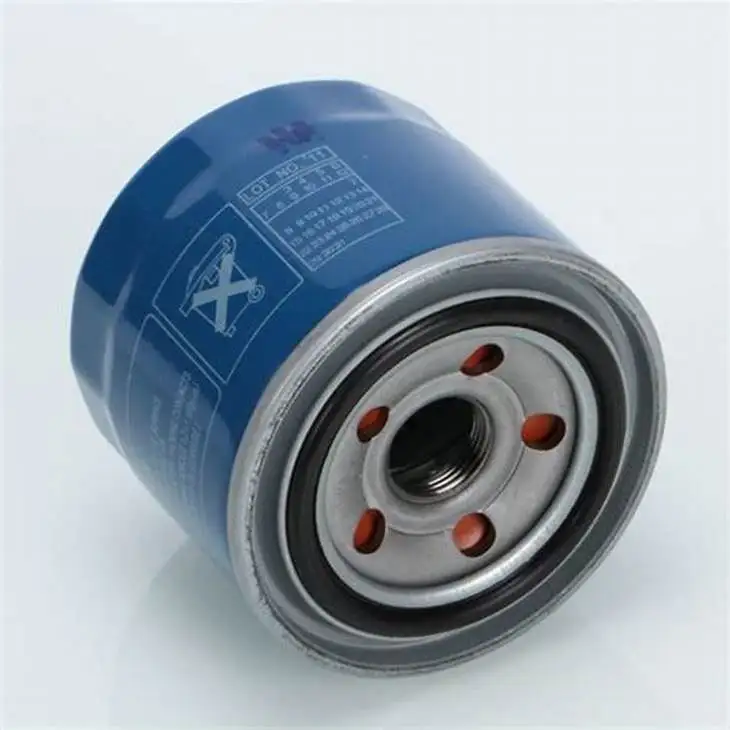Aug . 09, 2024 06:00 Back to list
The Importance of Regular Oil Filter Maintenance for Optimal Engine Performance and Longevity
The Importance of Oil Filters in Automotive Maintenance
When it comes to maintaining the longevity and performance of a vehicle, one component often overlooked is the oil filter. Despite its relatively small size and low cost, the oil filter plays a crucial role in ensuring that the engine runs smoothly and efficiently. This article will explore the importance of oil filters, how they work, and why regular maintenance of this component is vital for your vehicle's health.
What is an Oil Filter?
An oil filter is a device designed to remove contaminants and impurities from engine oil. Engine oil circulates throughout the engine to lubricate moving parts, reduce friction, and dissipate heat. Over time, however, this oil can accumulate dirt, metal shavings, carbon deposits, and other debris, which can hinder its effectiveness. The oil filter acts as a barrier, trapping these harmful particles and preventing them from circulating back into the engine. By maintaining the cleanliness of the oil, the filter helps to protect engine components and prolong their lifespan.
How Do Oil Filters Work?
Oil filters generally work using a combination of mechanical and chemical processes. Most modern filters utilize a pleated paper or synthetic media that provides a large surface area for trapping contaminants. When engine oil passes through the filter, the media captures particles as small as a few microns, ensuring that only clean oil returns to the engine.
paper oil filter

Some oil filters also contain an anti-drain back valve that prevents oil from draining out of the filter when the engine is off. This feature ensures that when the engine starts, it has immediate access to clean oil, which is critical for protecting engine components during initial operation. Additionally, many filters are equipped with a bypass valve that allows unfiltered oil to circulate in case the filter becomes clogged, ensuring that the engine continues to receive lubrication.
Why is Regular Oil Filter Maintenance Important?
Regularly changing the oil filter is essential for several reasons. Firstly, a clogged or dirty oil filter can lead to decreased oil flow, resulting in inadequate lubrication for engine components. This can cause increased wear and tear, leading to potential engine damage or failure over time. Secondly, changing the oil filter at the recommended intervals helps to maintain the overall quality of the engine oil. Clean oil is vital for efficient engine performance, improved fuel economy, and reduced emissions.
Most automobile manufacturers recommend changing the oil filter during every oil change, typically every 3,000 to 7,500 miles, depending on the vehicle and the type of oil used. Ignoring this maintenance step can result in costly repairs and decreased vehicle performance.
Conclusion
In conclusion, while the oil filter may not be the most glamorous component in an engine, its importance cannot be overstated. It serves as the frontline defense against contaminants that could damage the engine and impair performance. Regular maintenance of the oil filter, along with timely oil changes, is essential for ensuring that your vehicle operates at its best. By investing a little time and money in this simple routine, vehicle owners can save themselves from much more significant costs associated with engine repairs in the future. In the world of automotive maintenance, the oil filter is a small part that makes a big difference.
-
Car Air Filter 17801-31090-OEM Quality|PP Filter, ISO Certified
NewsAug.10,2025
-
Car Air Filter OEM Quality 17801-31090/17801-0P010 - QINGHE COUNTY ANNAITE AUTO PARTS CO.,LTD
NewsAug.10,2025
-
Ultimate Antiskid Tires: Superior Grip & Safety Performance
NewsAug.10,2025
-
Car Air Filter 17801-31090 / 17801-0P010 OEM Quality - QINGHE COUNTY ANNAITE AUTO PARTS CO.,LTD
NewsAug.09,2025
-
Car Air Filter 17801-31090/17801-0P010-OEM|High Efficiency&Durability
NewsAug.09,2025
-
17801-31090 Car Air Filter - QINGHE COUNTY ANNAITE AUTO PARTS CO.,LTD | OEM Quality, Durability
NewsAug.09,2025


